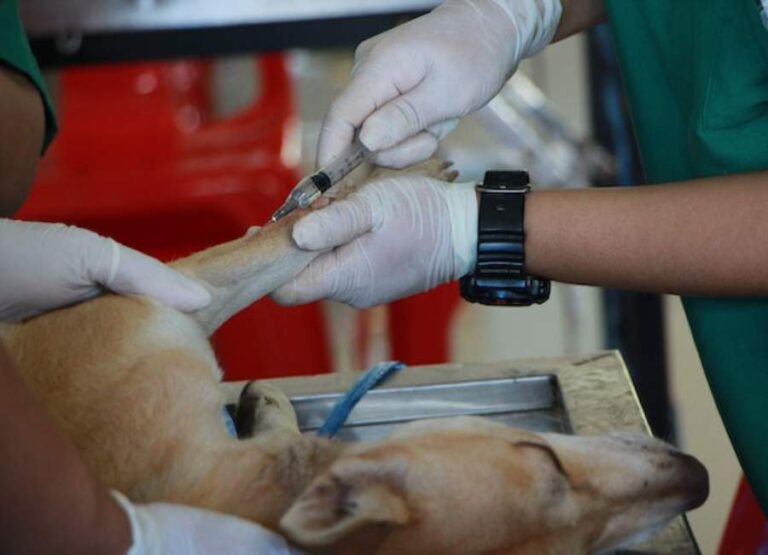Why Do Pomeranians Shake: 11 Common Reasons To Note

Pomeranians are fragile small breeds, which brings the question of why do Pomeranians shake, let’s find out together!
In this post, we will be discussing all the possible reasons why Pomeranians shake which you should know.
We will also discuss some common questions you may have about Pomeranian shaking, so sit tight and let’s roll!
Why Do Pomeranians Shake
Pomeranians can shake due to a variety of factors including excitement, stress, cold weather, seizure symptoms, generalized tremor syndrome, aging, medical issues, or signs of Pomeranian dying.
Shaking is a common reaction to certain behavioral and environmental circumstances, but it can also be a warning sign in others.
Some of the most prevalent reasons for Pomeranian shaking include:
1. Signs Of Old Age
Pomeranians are one of the longest-living small dog breeds, with some living to be 16 years old.
As they get older, they have health problems as a result of their longer lives, and this causes their legs to be weak, which can lead to shaking.
There’s not much you can do to aid an aging Pomeranian that shakes or shivers until you consult your veterinarian.
Their joints are weak and old as a result of many health issues linked with aging, and they can no longer efficiently sustain their bodies’ weight.
Senior Pomeranians are more likely to have tremors in their back and front legs, making it difficult for them to move properly and causing shaking or shivering.
When your Pomeranian reaches the age of ten, see your veterinarian determine the best course of action for your senior Pomeranian.
2. Signs they are feeling cold
Because a Pomeranian’s average body temperature is 35 to 38 degrees Celsius, your Pomeranian will become chilled if the room or ambient temperature goes too low.
Despite their long and dense fur, Pomeranians can be chilly; however, this is entirely dependent on where you live.
If the temperature in the surroundings decreases to a level that your Pomeranian cannot withstand, your Pomeranian may begin to quiver.
If your Pomeranian is trembling and the weather isn’t cooperating, consider the temperature of the room.
Some Pomeranians, on the other hand, prefer playing in the snow; it is up to you to choose when they should be removed.
3. Signs Of Generalized Tremor Syndrome
Pomeranians, Pugs, Yorkies, Boston terriers, Shih Tzus, and Chihuahuas are more prone to acquire generalized tremor syndrome than other tiny breeds.
Full-body tremors, similar to those experienced by a dog when it is cold, define this illness, sometimes known as shaker syndrome.
The symptoms of generalized tremor syndrome vary from dog to dog, although it most commonly affects Pomeranians between the ages of three and five.
Although no one knows what causes widespread tremor syndrome, it is generally thought to be non-lethal.
Corticosteroids may be prescribed by your veterinarian, however, for some dogs, shaking is an inescapable part of life.
If your Pomeranian continues to tremble for no apparent cause, always visit your veterinarian.
4. Signs of chronic nausea
When Pomeranians are constipated or have chronic Nausea and diarrhea, they tremble a lot which can easily be noticable.
Chronic nausea can also induce shaking during long vehicle journeys or after eating unpalatable meals.
Vomiting, drooling, lack of coordination, shivering, and yawning are all symptoms of chronic nausea.
Consider your daily schedule, what they consume, and how your Pomeranian is affected if he shakes a lot.
Your Pomeranian’s tremors, for example, might be triggered by that great vehicle ride you enjoy every day.
5. Hypoglycemia
An abrupt reduction in blood sugar is known as hypoglycemia. When your Pomeranian’s body lacks sugar, it begins to shake.
Hypoglycemia, a medical condition that causes Pomeranians to tremble and shake, is also a possibility.
Because their capacity to handle sugar levels in their blood has not fully matured, this condition is more frequent in puppy Pomeranians (up to 6 months).
If left untreated, hypoglycemia can lead your Pomeranian to lose consciousness or, in the worst-case scenario, death.
Stress, starvation, and even being the runt of the litter can all contribute to hypoglycemia.
6. Signs of chronic seizures
Seizures are a neurological condition that causes dogs to shake and pass out without realizing it.
Seizures may afflict dogs of all sizes and breeds, as well as other pets.
Seizures are unlikely to injure the dog physically, although they may cause damage if the dog falls or knocks items over and into itself.
Contact your doctor right away if your Pomeranian begins to experience seizures. Medications for seizure management may be able to help.
Jerking, tongue gnawing, loss of consciousness, and collapse are all examples of seizures in a Pomeranian.
7. Overly excited
Pomeranians are ecstatic when a family member comes home since they were raised to thrive on human interaction.
The dog’s eagerness may be seen in his pores, which tremble or shake. This isn’t a symptom of anxiety or illness.
Pomeranians may shiver and shake when they see you prepare to eat their favorite dish or play with their favorite toy.
When Pomeranians owners arrive home late at night, they may shake, shout, and even urinate enthusiastically; nevertheless, this is unrelated to sickness.
While many of these behaviors are normal in Pomeranians and other companion dogs, keeping your greetings brief and icy may help your Pomeranian unwind.
8. Signs of high fever
A high temperature, which can be induced by a variety of factors, is one of the most prevalent causes of shaking in Pomeranians.
A Pomeranian’s normal body temperature is 35 to 38 degrees Celsius, but if it rises over that, it might suggest a fever.
Tremors have been associated with high temperatures in Pomeranians.
Which can be generated by a variety of factors, including heatstroke, poisoning, infections, increased respiratory rate, etc.
9. Ingesting toxic substances or allergies
Some drugs are safe for humans but harmful to tiny dogs like the Pomeranian.
Nicotine in cigarettes is harmful, but xylitol is a sugar substitute found in many chewing gums. Small dogs, such as Pomeranians, are particularly vulnerable to both.
In little dogs like Pomeranians, these chemicals or toxins can induce significant shaking and shivering.
A bee sting, a snake bite, severe food sickness, or scorpion stings might cause your Pomeranian to tremble or shudder.
This is a big concern even if you don’t observe your Pomeranian come into touch with something harmful or hazardous.
Pomeranians, for example, react swiftly to toxins due to their size and strength.
Keep your Pomeranian away from potentially dangerous chemicals and small animals as a result.
If you believe or notice that your Pomeranian has ingested anything potentially toxic or has been bitten by a small animal, please take him to the veterinarian.
Additional signs of toxin consumption in Pomeranians include:
- Fainting
- Disorientation
- Continues vomiting
- Difficulty breathing
- Sudden Weakness
10. Sign Of Chronic Pains
Your older Pomeranian may be suffering from canine arthritis if he shakes or chills, especially in his hindquarters.
Many pains can cause Pomeranians to shiver or shake uncontrollably, so keep an eye on your dog if you see uncontrollable shaking.
Infections, traumas, and even dental issues may cause a lot of suffering in a Pomeranian.
Depending on the cause of your puppy’s pain, your veterinarian may recommend additional diagnostic testing and/or pain therapy.
Why is my Pomeranian shaking and panting
Excessive panting and shivering in Pomeranians can be caused by a variety of factors including stress, increased pain, discomfort, poisoning, renal illness, injury, allergic responses, toxins, bites, and stings.
Don’t dismiss trembling in your Pomeranian, especially if it isn’t related to excitement; whatever the cause, schedule an appointment with your veterinarian.
Difference Between Pomeranian Seizures Vs Shaking
A seizure, in which the muscles cramp up and the dog loses both mobility and knowledge of their environment, is not the same as normal shivering and trembling.
While Pomeranian shaking may lessen in a short time, seizures may necessitate veterinary treatment.
If you fear your dog is experiencing a seizure and they aren’t being treated for a seizure illness, take them to an emergency veterinarian right soon.
While the majority of reasons for shivering in dogs are mild, you should always visit your veterinarian if you’re unsure.
They can explain why a dog is shivering as well as determine whether something more dangerous is going on.
Even if you have no cause to be concerned about, obtaining a second opinion from a veterinarian will provide you with reassurance.
Pomeranian shaking of heading
Pomeranians might shake their heads constantly due to ear infections, flea bites on the head skin, allergies, and head tremors caused by a head injury.
Due to old age or other ailments, Pomeranians may shake their heads.
Due to the shape of their ears, Pomeranians are prone to ear infections, and ear infections are one of the most common reasons why owners see their veterinarians each year.
Shaking of the head in an older Pomeranian might suggest an ear infection, ear mites, parasites, allergies, hematoma, toxins, or even balance issues.
Examine their ears to see whether there’s a problem, but the issue remains. Make an appointment with your veterinarian.
Pomeranian vomiting and shaking
A toxic plant, onion ball, garlic ball, or poisoned material, all of which can cause vomiting and shake in a Pomeranian, can create an upset stomach.
Pomeranians might vomit and shake because to a swollen stomach, pancreatitis, or renal illness.
Your Pomeranian’s trembling and vomiting are signs that something is wrong, and they should see a doctor right once.
Keep track of how often they vomit, as well as how much and what color it is, and contact your veterinarian if it doesn’t stop after a few hours.
Pomeranian shaking of hind legs
Patellar luxation or generalized tremor syndrome, which is frequent in tiny breeds such as Pomeranians, Yorkies, Boston terriers, miniature pinschers, and Chihuahuas, might be the reason for a Pomeranian’s hind limb shaking.
Remember that shaking doesn’t always indicate a neck or spinal injury or a neurological issue in your dog; but, if you’re still worried, get medical help.
Patellar luxation, often known as sliding or floating kneecaps, is a frequent condition affecting many dogs’ back legs, particularly petite breeds such as Pomeranians.
Anxiety, a cold, or age-related tremors are the most typical reasons.
With the information provided on this page, I strongly hope your question about why do Pomeranians shake was addressed!

![What Do Shih Tzus Usually Die From [10 Things] What Do Shih Tzus Usually Die From](https://petcreeks.com/wp-content/uploads/2023/04/What-Do-Shih-Tzus-Usually-Die-From-768x555.jpg)




![Dog Drinking a Lot of Water And Not Eating [Explained] Dog Drinking a Lot of Water And Not Eating](https://petcreeks.com/wp-content/uploads/2023/02/Dog-Drinking-a-Lot-of-Water-And-Not-Eating-768x555.jpg)